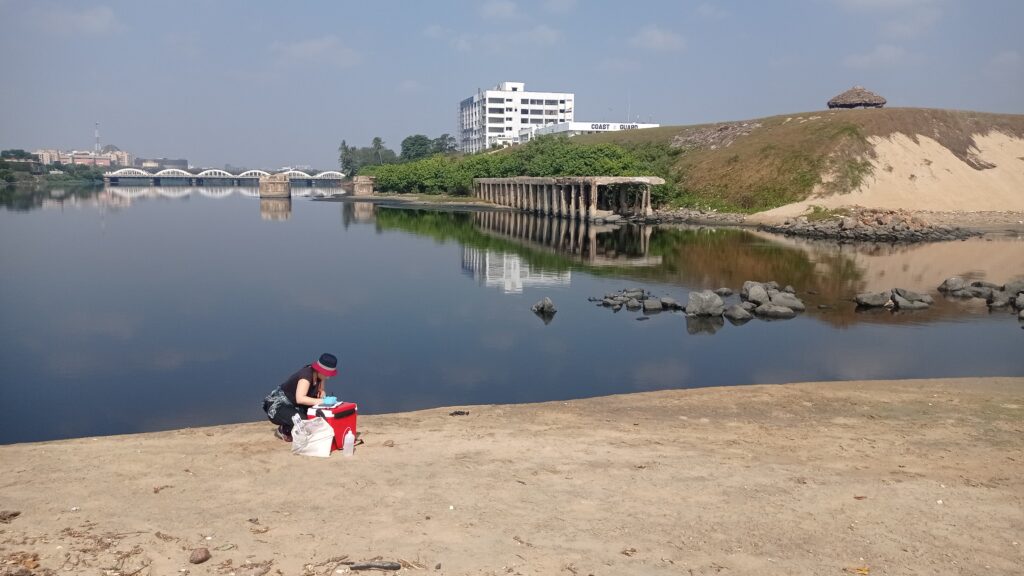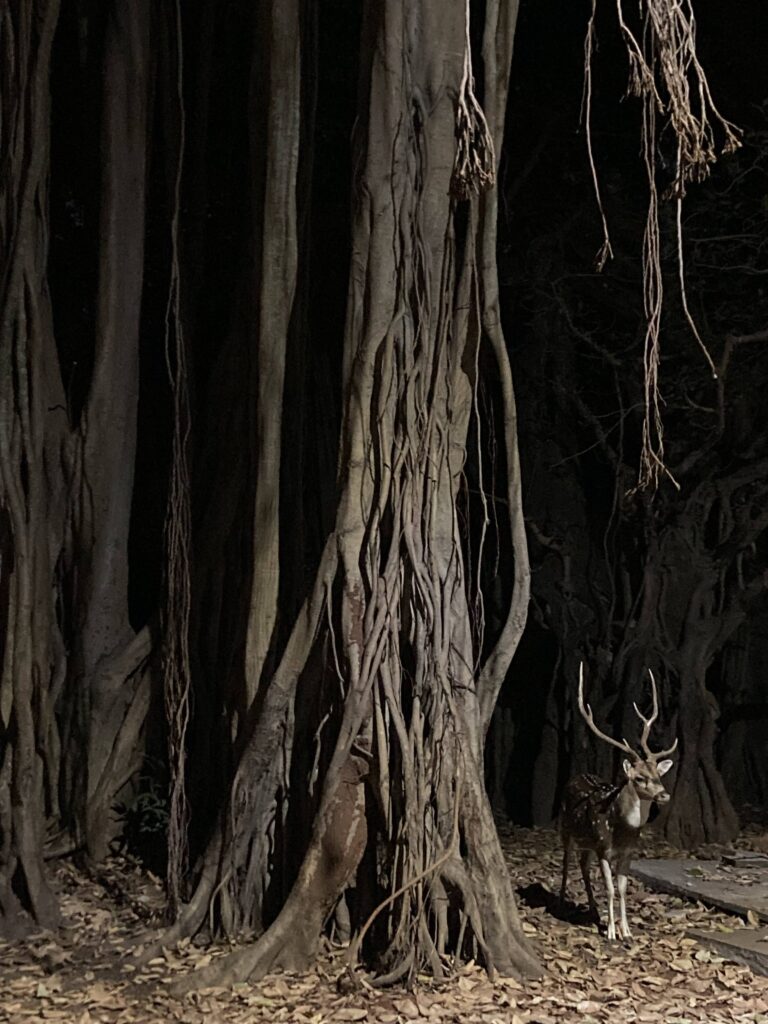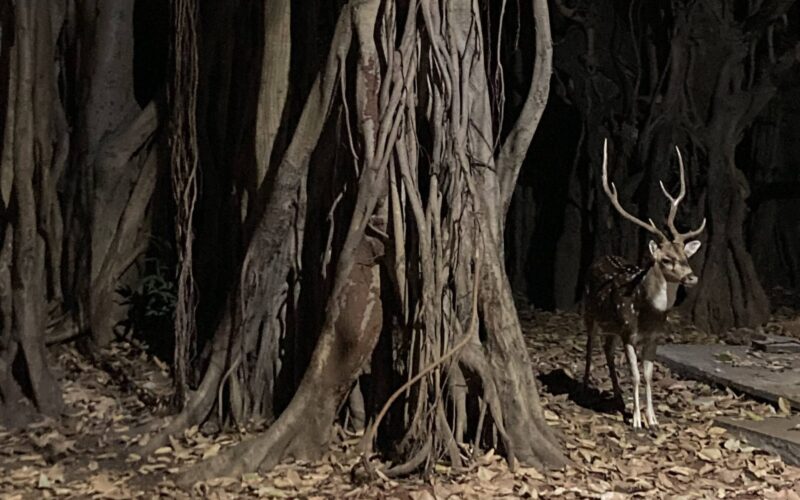Nina Engels is an IGCS research exchange scholar from Neotectonics and Natural Hazards Group at RWTH Aachen University, who was staying at Indian Institute of Technology, Madras, Chennai, India between 20. February until 15. March 2023. They were doing research on the topic of “Coastal and estuarine sediment archives for flood-induced pollution in subtropic/tropic areas” under the supervision of IIT Madras’ Prof. Dr. Sannasiraj S A from the Department of Ocean Engineering, and Prof. Dr. Indumathi M. Nambi, from the Department of Civil Engineering.
Nina’s stated the following about their research exchange in India:
“The aim of our study and my research stay in Chennai, India, was to identify suitable sedimentary archives at local river systems to learn about flood-induced transport, distribution, deposition, dilution and enrichment of contaminants. Highly populated regions along the south-eastern Indian coastline are particularly vulnerable to periodic and aperiodic flood events. With ongoing global warming, flood-related impacts will increase in frequency and amplitude. During flood events, anthropogenic pollutants, adherent to sediments, get deposited in the catchment areas and can pose a threat to humans and the environment. As little is known about the flood-induced contamination, the highly polluted and flood-affected river systems of Adyar and Cooum in Chennai have been chosen as study area. We aimed to identify deposition areas and pollution indicators that are suitable to reconstruct the river pollution history.
To approach the research questions, field and laboratory work was carried out in February and March 2023. It was a follow-up campaign of a preceding campaign that has been conducted in 2019. We took sediment and river water samples along the Adyar and Cooum rivers as well as the Buckingham Canal. The sediment samples were collected using a geoslicer, a tool designed for collecting nearly undisturbed vertical sections of sediment deposits. The water samples were processed in the IGCS lab facilities at the IIT Madras. Currently, geochemical analyses are carried out at the Institute of Organic Biogeochemistry in Geosystems at RWTH Aachen and results will be finalized at the beginning of 2024. Challenges we faced during the field- and lab work were related to finding and accessing suitable sampling sites, coping with time-consuming processes in the lab and fieldwork organization. As we worked closely with local staff of the IIT, we were always accompanied in the field by a student who could speak the local language, Tamil. This gave us the opportunity to communicate with local people in Chennai and ask about their experiences with flood events. Although we had to adjust some locations, we were able to collect samples at most of the planned sampling locations to get a better understanding of the flood-induced contamination.
A research stay in India is a unique experience on many different levels. Not only is it interesting research-related, but also getting to know the Indian culture and people more closely, working in international teams on current sustainability challenges and exploring this amazing country are enriching and valuable experiences. One of my highlights was our daily evening stroll around the calm and beautiful IIT campus after having a very tasteful Indian dinner. That gave us the opportunity to discuss what we experienced during the day, finding solutions to problems we encountered and just enjoying the atmosphere on campus.”



